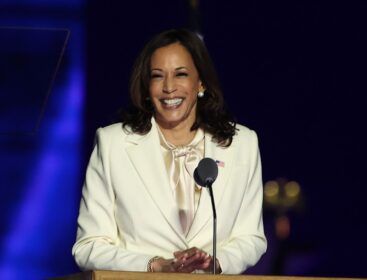Venice Film Festival Embraces a New Wave of Erotic Cinema
The Venice Film Festival showcases a fresh take on erotic cinema, blending steamy scenes with deeper narratives that explore sexuality, identity, and social norms.
Bollywood Fever: Venice is turning up the heat as the Film Festival rolls out a bold lineup of erotic cinema that spans a wide range of themes—gay, straight, kinky, and intellectual—proving that sex on screen can be both sizzling and meaningful.
Among the most talked-about titles at this year’s festival are Babygirl by Halina Reijn and Alfonso Cuarón’s TV series Disclaimer. Both open with scenes of orgasmic intensity, with Babygirl featuring Nicole Kidman as a tech manager who explores BDSM, often in a state of near or total undress.
The film pushes boundaries while paying homage to the erotic thrillers of the ’90s, yet it offers a modern, feminist twist.
Luca Guadagnino, known for Call Me By Your Name and Challengers, returns with Queer, an adaptation of William S. Burroughs’ autobiographical novel. Starring Daniel Craig as a drug-addicted American expat in 1950s Mexico, the film delves into his obsessive pursuit of a younger, bi-curious navy sailor, played by Drew Starkey.
Italian filmmaker Giulia Louise Steigerwalt brings Diva Futura to the screen, a film exploring the legendary Italian porn studio that launched the careers of stars like Cicciolina. Meanwhile, Norwegian director Dag Johan Haugerud’s Love, part of his Sex/Love/Dreams trilogy, examines the contrast between societal expectations of sex and personal desires, in a film filled with explicit dialogue but devoid of graphic scenes.

Reijn explained her approach to Babygirl, stating, “As a consumer, sometimes I just want to see a hot movie, a sexy movie… with hot people in scenes that turn me on a little bit.” However, unlike the erotic thrillers of the past, the goal of these films is not to shock or titillate, but to explore deeper themes such as sexual identity, power dynamics, and the complexities of human desire.
Cuarón’s Disclaimer uses erotic scenes not just for arousal, but to enhance the narrative of his Rashomon-style mystery, while Guadagnino’s Queer portrays sex as a desperate search for connection in a world that lacks the language to describe it.
In The Brutalist, directed by Bradley Corbet and a frontrunner for Venice’s Golden Lion, sex is depicted as a reflection of trauma rather than desire, with two explicit scenes revealing the deep scars left by the horrors of World War II on its characters.
Perhaps the most radical approach comes from Haugerud’s Love, where the focus is entirely on conversation. The characters discuss sex in explicit, medical detail, without any visual representation. “People have sex in different ways and you can’t ask [the actors] to bring his or her sexual experience to the shooting because that’s so private,” Haugerud explains, emphasizing the importance of truthful and realistic dialogue over cinematic portrayal.
Haugerud’s trilogy aims to make films “about sex without showing sex,” encouraging a pragmatic and thoughtful approach to sexuality. He envisions a society where such open, honest conversations about sex are possible and unburdened by judgment.
This year’s Venice Film Festival doesn’t just bring back sexy cinema—it redefines it. By blending eroticism with introspection, these films challenge viewers to think deeply about the role of sex in our lives, making the conversation as important as the action itself.
More Entertainment News, Nikki Bella Hosts Netflix Event Amid Husband’s Arrest for Felony Domestic Violence
Sydney Sweeney “Very Excited” to Reprise Role in Euphoria Season 3 Despite Delays
Julianne Moore and Tilda Swinton Shine at Venice Film Festival for Pedro Almodóvar’s Latest Film












